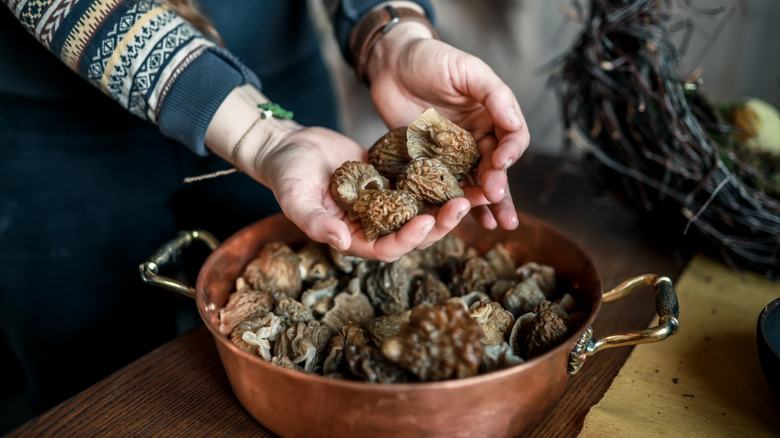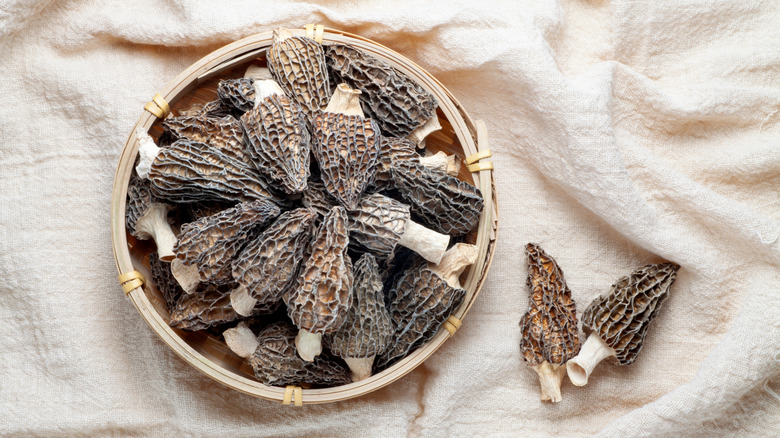Why You Should Think Twice About Eating Morel Mushrooms
Morel mushrooms are considered a delicacy and are often hidden gems to look out for at farmers markets during their harvest time in the spring. However, while morels are popular for their savory flavor, few people actually know that consuming them can be a risk. In 2023, the CDC and FDA launched an investigation after several customers fell ill following a meal at Dave's Sushi in Bozeman, Montana. Some of the symptoms reported were nausea, diarrhea, vomiting, and dizziness. Ultimately, they discovered that morels, all of which were uncooked or undercooked at the restaurant, seemed to be the cause. While the mushrooms were traced to a single distributor, six other locations that prepared the same morels — only fully cooked — reported no illnesses.
So, why are uncooked or improperly cooked morels so dangerous? Well, we don't really know. According to the FDA, the toxins that cause illness in morels aren't currently understood, and even through lab tests, no specific toxin could be pinpointed because so little research on morels has been done.
Speaking with Scientific American, Marian Maxwell from the Puget Sound Mycological Society theorized that morels may contain some form of hydrazine, a cancer-causing chemical found in both true and false morels (a variety of morel that's easily mistaken for the true one), which is used in things like pesticides, rocket fuel, and textile dyes. A 2021 report published in the Fungi Magazine notes that morels could also lead to hemolysis, a process that causes red blood cells to breakdown, but that likely isn't the main reason why people get sick after eating them. Currently, the FDA advises that cooking is the only way to lower the amount of toxins for safer morels, though it doesn't eliminate them entirely.
If you're going to eat morel mushrooms, be smart about it
There are a lot of mistakes you can make with mushrooms, and when it comes to morels, undercooking or eating them raw is the biggest one. Fortunately, there are many ways to safely cook morels, such as sauteing or frying them. They should be hot all the way through and have a rich brown color when cooked.
However, you should never consume morels that are discolored or appear dried out (when they're supposed to be fresh), or which have an off smell. As for cleaning, soaking morels in salt water for a few minutes is a good way to remove dirt and anything else stuck inside their many crevices. While there are many ways to store fresh morels, if you will be using them soon, your fridge is the best place, not your counter. They should also be stored in a breathable container, like a paper bag, to prevent the growth of harmful bacteria.
It's also worth noting, especially if you're planning on picking morels yourself, that there are numerous false morels that can be highly toxic. They're difficult to tell apart from real morels, even for experienced mushroom hunters. So, it's best to stick to buying morels from reputable sources, even though they are pricey, just to be as safe as possible.

